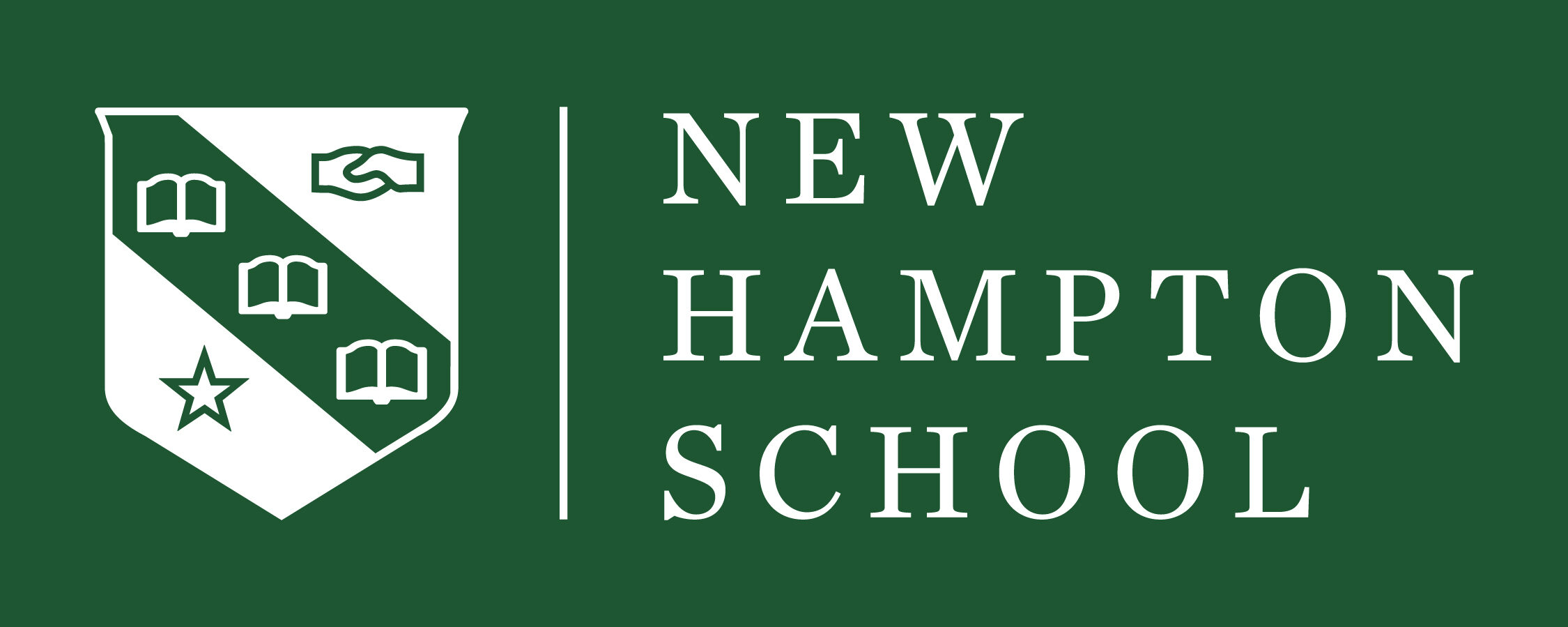International Students and New Hampton School
From the early days of its founding 200 years ago, New Hampton School has had a global presence that translated to a richer environment for the whole community. In its first two decades (1821-1841) fifteen international students left their homes to attend NHS while boarding with local families. Since then, hundreds more have followed, coming from Argentina, Australia, Austria, Bahamas, Barbados, Belize, Bermuda, Brazil, Cameroon, Canada, Colombia, Costa Rica, Cote d’Ivoire, Cuba, Curacao, Czech Republic, Dominican Republic, Ecuador, El Salvador, France, Gabon, Germany, Greece, Guatemala, Haiti, Hong Kong, India, Indonesia, Iran, Italy, Japan, Jordan, Kazakhstan, Kuwait, Latvia, Lithuania, Macao, Mexico, Netherlands, Nicaragua, Nigeria, Norway, P. R. China, Pakistan, Peru, Rep. of Korea, Romania, Russian Federation, Rwanda, Saudi Arabia, Singapore, Slovakia, Spain, Sweden, Switzerland, Taiwan, Thailand, Trinidad & Tobago, Turkey, Ukraine, United Kingdom, Venezuela, Vietnam, Virgin Islands, and Wales and other countries.
Early Days – John K. Simpson, Entrepreneur & Baptist Missionaries
Why would students sail halfway around the world to attend a new school in the woods of New Hampshire in the 1830s and 1840s? Two probable reasons were the missionary spirit of the times and the marketing skills of the Boston merchant and key NHS founder, John K. Simpson. Even prior to opening day on Monday, September 17, 1821, Simpson was indefatigable in his efforts to recruit boarding students from Boston, and soon had students coming from all over New England. Never shy about promoting the value of NHS, Simpson’s reach, built on his domestic and international business contacts, extended well beyond the northeast and drew students from Canada, Greece, Sweden, Peru, and Great Britain, as well as Illinois, New Jersey, New York, Pennsylvania, Florida, and the “Wisconsin Territories.”
Along with boarding students from Boston, New Hampton Academy opened with strong ties to the Baptist church and its global network of missionaries. A number of the academic courses were geared to training ministers and missionaries. In 1826 the school changed its name to the Academical and Theological Institution at New Hampton, and ensuing trustees, heads, faculty and students came from Baptist congregations engaged in work for the church around the world.
Early International Connections
Rev. Otis Bacheler, M.D. D.D. was a missionary in India for more than half a century. In 1856 he acquired a house in New Hampton (still standing) that he leased to NHS as a boarding house for students when he returned to India. His son Albert, born and raised in Midnapore, India, came back to enlist in the Civil War and the Bacheler family followed. While his father served on the board and executive committee of NHS, Albert graduated from NHS in 1867 and then Dartmouth in 1871. He began a lengthy career as an educator, serving as principal in a number of schools, including in Manchester, NH.
Professor Joseph W. Chadwick, 1857 graduate of NHS who served as head of New Hampton from 1862-1866, described how he learned about the school: “I owe it to Dr. Otis Bacheler that I am here today. In one of his trips he stopped at my father’s house, and persuaded my parents to send me to New Hampton to school. That was the opening of life for me.’ Doubtless many others could give a like testimony [as] many date the beginning of their interest in missions to the stirring addresses of Dr. Bacheler.”[1] Chadwick continued, “A word should be said of Dr. Bacheler as a trustee and member of the executive committee of New Hampton Institution. First, last, and always, he was a missionary, but he was at the same time broad enough to embrace other worthy interests. He was always interested in the prosperity of the Institution, never sparing of his advice, time, or money, when the interest or prosperity of the Institution was in question. He was among her earliest and best friends.”[2] Upon retirement from missionary work, Dr. Bachelor, along with helping NHS, practiced as a dentist and oral surgeon and gave the occasional illustrated lecture (with 35 transparent views) on “The Manners, Customs and Religion of the Hindoos.”
Setting the Course for NHS Today
Throughout the 1950s through 1980s, a steady stream of international students continued to contribute in class, in the studio, on stage, in clubs, and on the playing fields. Kent Bicknell ’65 states, “In my senior year, I was fortunate to share the soccer pitch with the talented goalkeeper, Edwardo Carerro of Mexico City. He moved with the grace, agility and anticipation of a large cat, and it was the first time I played with a goalie who could anticipate and stop penalty shots!” Eight years later, T. Holmes Moore’s son, Rob ‘73, was part of a very talented team that included current NHS Board of Trustees President, Karl Kimball ‘74 and past President, Peter Galletley ‘73. In Rob’s words:
The soccer team in the fall of 1972 was a convergence of athletes from all different backgrounds that came together to gel, then excel, compiling a 9-3-1 record while winning the Lakes Region Championship.
Four students who hailed from other countries, three from Germany and one from Thailand, brought key ingredients to the team. Anchoring the team in goal and decisively directing the players in front of him was Guenter Stricker ‘73. At midfield, were Peter Heil ‘73 and Todd Suvannachive ‘74. Peter could control just about any ball and distribute it adeptly. Todd was like an acrobat weaving through opposing players, then serving up a perfect pass. Up front, senior Egbert Zimmerman ‘73 brought ruthless grace and beauty to the field with runs that would stun and goals that would awe.
Midfielder Karl Kimball ‘74 said of Guenter’s goalkeeping, “I had played goalie before coming to New Hampton, so I knew a lot about the position. I was in awe of Guenter’s positioning, grit, and how he would take control of the field.”
Defender Pete Galletly ‘73 remembers how these international students showed us how to play a different kind of game with a new dimension, opening the field, distributing the ball with patience yet just the right opportunism to score goals.
NHS Hall of Fame Coach Dave Rice was a genius with positioning, directing us from the sidelines—an omnipresent cigarette hanging from his mouth—making small adjustments to tweak the lineup so the chemistry was just right. Assistant Coach Peter Bixby was a master motivator who could outrun most of us at practice and who pushed us hard to be better than we thought we could be.
Co-captain Brad Boyce ’73 remembers that from his place at center midfield he could rely on these adept and inspiring teammates to distribute, create, and accomplish with controlled composure, slowing the game down. Brad credits them with teaching us to pass the ball back to create space and to slow the game down—a tactic which won us some games we would not have won otherwise, a tactic that American high school soccer generally had not yet evolved.
We American boys learned lessons that played out off the field as well. About life and people, they taught us to broaden our horizons and not only to be curious about people who come from another culture with new ideas and perspectives, but to pay attention to and acquire new skills and understandings.
About “the beautiful game”, they taught us that a team is built on the alchemy of great preparation, the notion that each player has his role, and the certainty that a mistake is an opportunity to learn how to do better next time. When that chemistry is present, the results are both elegant and fun, no matter where in the world the beautiful game is played.
Rob Moore ‘73 Team Co-Captain
Ms. Xinying Wang, NHS ‘20 – Commencement 2020 Speaker
Continuing the international tradition, Xinying “Sally” Wang spoke as the Cum Laude Society Member at the 2020 Commencement to her classmates, families and guests:
My journey at New Hampton School has been life-changing. As an international student who transitioned from a public middle school in China, I remember the challenges during my freshman year. I did not know how to write a hypothesis, I felt shy in my biology class; I would spend hours completing an English reading assignment, only not to dare share my thoughts in class; I felt acutely the cultural and language gap, which made me afraid to communicate. It was not easy.
Now, I am graduating. I have written multiple full lab reports. I have successfully designed a lab and completed several IB Internal Assessments (even though teachers still wish I would, “share out more often”). The support from teachers and peers has been indispensable in this learning process, as my teachers ignited my interests in various subjects, and my peers showed me how to be a leader as well as demonstrating what ‘diverse’ and ‘inclusive’ mean. I have become a better person – a person who is more open-minded and capable of taking on responsibilities, and who is much more mature and confident when encountering challenges and failures. Yet I recognize I still need to improve.
NHS Adopts the International Baccalaureate Program in 2010
In 2010, NHS announced it had become the first boarding school in New England approved to offer the International Baccalaureate (IB) diploma. The IB program is rigorous, the curriculum is interconnected, and there is a focus on analytically based learning and its applications – on the “why” of learning. An NHS student who completes the program earns an IB diploma that carries recognition and respect from universities around the world. Endowing NHS with a dynamic IB Program attracted more international students who were eager to experience the ever wider-range of academics, visual and performing arts, athletics, service program and independent projects to be found in the hills of New Hampshire.
Perhaps the most basic criterion for evaluating a school – whether deciding to apply, to attend, to teach at, to donate to – is to determine whether it lives its mission. There is no doubt that NHS “cultivates lifelong learners who will serve as active global citizens” – and that it has been doing so for 200 years.
[1] Rev. Otis Robinson Bacheler, M.D. D.D. : Fifty-three Years Missionary to India by Rev. Thomas Hobbs Stacy [Boston 1904], pp. 462-463.
[2] Ibid, p. 487.




